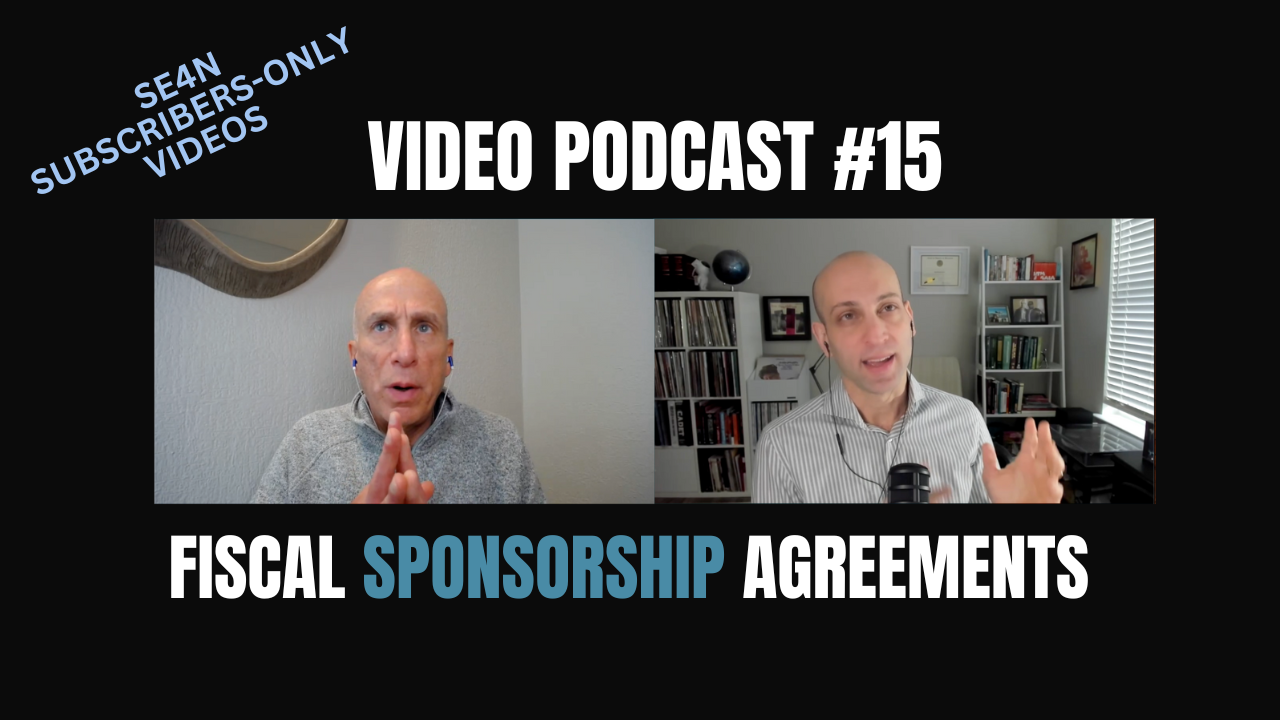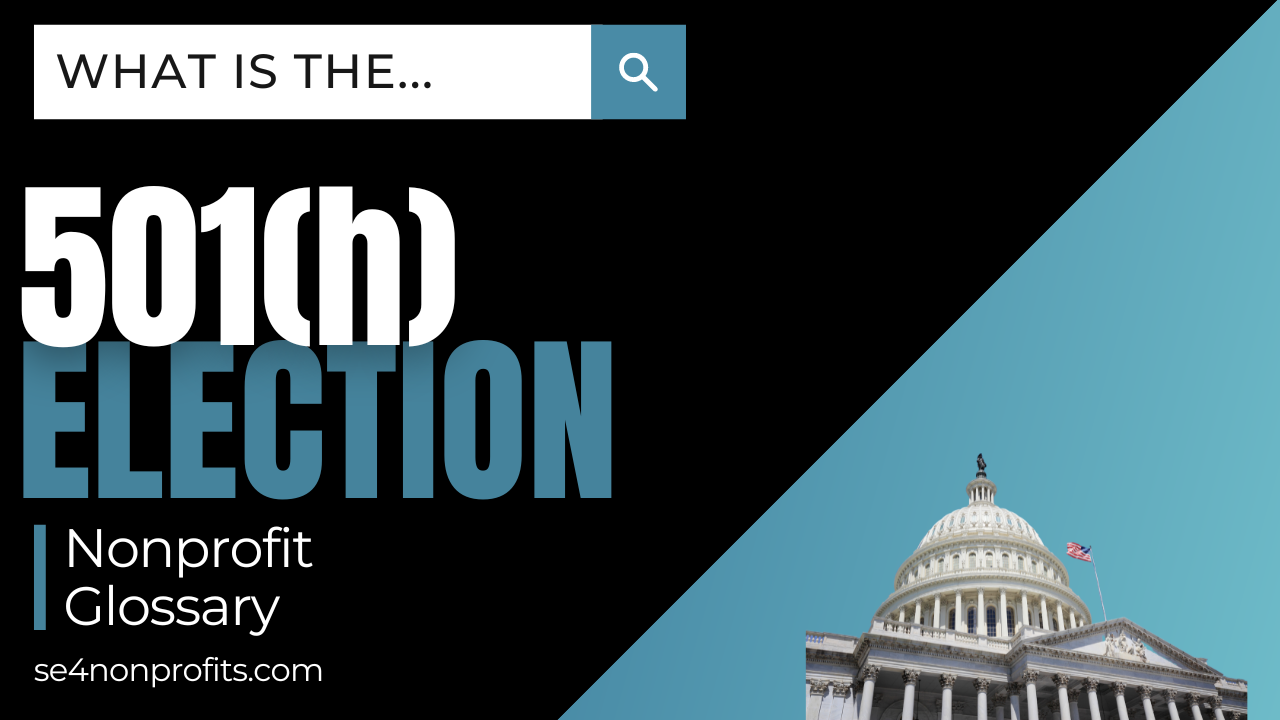
Blog.
Most Recent Posts

Video Podcast: Private Benefit Rule Basics for Nonprofits
Ben and Mike discuss the private benefit rule that applies to 501(c)(3) organizations, addressing how the private benefit rule is broader than the private inurement and excess benefit transaction rules, examples of how the private benefit rule applies to specific programs, how to assess whether private benefit is "incidental,” and more.

Q&A #178 – Are Board members allowed to participate in a 501(c)(3) organization's programs?
Internal Revenue Service (IRS) guidance suggests that, in general, Board members and other disqualified persons may participate in a 501(c)(3) organization’s programs without violating the inurement, excess benefit transaction, and other conflict of interest rules so long as they participate in the same manner as the general public. However, caution is warranted because this guidance is limited and may not apply to all situations.

The Fundamentals of the Private Benefit Rule
501(c)(3) nonprofit organizations rightfully focus much of their attention on complying with laws involving conflicts of interest among Board members, officers, and management. However, the “private benefit rule” is often overlooked and reaches far beyond an organization’s insiders. A basic understanding of the private benefit rule can help you navigate potential issues in a wide variety of programs and activities.

Q&A #173 – Can a 501(c)(3) nonprofit organization convert to for-profit status?
In theory, there are ways for a 501(c)(3) public charity to transition to operating as a taxable for-profit business entity. However, this is a difficult process with many legal pitfalls, including the excess benefit transaction, inurement, and private benefit rules under federal tax law, and state laws governing nonprofit corporations and the use of funds received for charitable purposes.

VIDEO PODCAST: The Basics of Fiscal Sponsorship Agreements
Ben and Mike discuss fiscal core concepts to understand the fiscal sponsor relationship and fiscal sponsorship agreements, including the distinction between Model A, Model B, and Model C fiscal sponsorship, key provisions that are found in all types of fiscal sponsorship agreements, and other considerations to have in mind when drafting or negotiating a fiscal sponsorship agreement.
![TEMPLATE: Model A Fiscal Sponsorship Agreement [SUBSCRIBERS-ONLY]](https://images.squarespace-cdn.com/content/v1/5e6ccadfb4659c1d51df14d5/4fa14f59-82ca-4661-a339-d889aabce3ec/noah-naf-qhfxY3X6JV0-unsplash.jpg)
TEMPLATE: Model A Fiscal Sponsorship Agreement [SUBSCRIBERS-ONLY]
This template fiscal sponsorship agreement is intended for relatively straightforward “Model A” fiscal sponsorship relationships, sometimes called “direct” or “comprehensive” fiscal sponsorship. This sample document covers key terms such as the fiscal sponsor’s variance powers, the project leader's role as an employee of the fiscal sponsor, how assets are transferred upon termination, and more.
![TEMPLATE: Model C Fiscal Sponsorship Agreement [SUBSCRIBERS-ONLY]](https://images.squarespace-cdn.com/content/v1/5e6ccadfb4659c1d51df14d5/0ae236df-0659-4b4a-9eb1-8660e6167467/aldo-terrazas-OaHkLW3GOz4-unsplash.jpg)
TEMPLATE: Model C Fiscal Sponsorship Agreement [SUBSCRIBERS-ONLY]
This template fiscal sponsorship agreement is intended for relatively straightforward “Model C” fiscal sponsorship relationships, sometimes called “indirect” fiscal sponsorship or a “pre-approved grant relationship.” This sample document covers key terms such as the fiscal sponsor’s variance powers, the allowable use of grant funds, reporting and recordkeeping requirements, termination of the relationship, and more.

TEMPLATE: Short and Basic Grant Agreement
This short and basic grant agreement template is intended for situations involving relatively straightforward grants from one 501(c)(3) organization to another 501(c)(3) organization to fund a specific project or program. This sample document provides relatively concise language covering key terms such as the timing of grant payments, the allowable use of grant funds, reporting and recordkeeping requirements imposed on the recipient organization, and more.
![VIDEO Q&A for Subscribers: September 2024 [SUBSCRIBERS-ONLY]](https://images.squarespace-cdn.com/content/v1/5e6ccadfb4659c1d51df14d5/f0598e46-14f4-464c-8b03-5ce99563762d/SE4N+Video+Q%26A+2024-09.png)
VIDEO Q&A for Subscribers: September 2024 [SUBSCRIBERS-ONLY]
Ben and Mike answer questions from subscribers about whether nonprofit organizations should require employees and Board members to provide receipts for small dollar expense reimbursements, tips for properly using executive sessions in Board of Directors meetings, and issues raised by nonprofits providing capacity building support to other nonprofits.

Q&A #161 – Can a foreign nonprofit organization qualify for 501(c)(3) status?
Charities formed outside of the United States may qualify for 501(c)(3) status so long as they satisfy the requirements that apply to 501(c)(3) organizations under U.S. law. This status makes it easier for foreign organizations to receive grants from U.S. private foundations and mitigate or avoid U.S. income tax on revenue received from U.S. sources. However, donors generally cannot use the charitable deduction under U.S. tax law for contributions made to organizations formed outside of the U.S., so many foreign organizations form affiliated “friends of” organizations in the U.S. for this reason.

Q&A #158 – What happens if a fraudulent Form 1023-EZ is filed for my organization?
Despite what some unscrupulous service providers may tell you, there are potentially serious penalties for submitting a Form 1023-EZ application for an organization that is clearly ineligible to do so. In addition to revocation of 501(c)(3) status, this can include criminal fines and even prison pursuant to the Internal Revenue Code’s fraud and false statements provisions (26 U.S.C. § 7206). However, if a Form 1023-EZ was fraudulently filed without your knowledge, approval, or participation then these criminal sanctions very likely will not apply.

Q&A #156 – Who is considered a family member under nonprofit conflict of interest rules?
Extended family members such as aunts, uncles, and cousins generally fall outside of the technical definition of “family members” under the federal tax code provisions governing conflicts of interest involving 501(c)(3) nonprofit organizations. However, these types of relationships can certainly lead to the perception that there is a conflict and should be treated as such to avoid the risk of damaging your organization’s reputation.

VIDEO: What is the 501(h) Election? | Nonprofit Glossary
SE4N's Benjamin Takis provides a short summary of the 501(h) election, how it affects the lobbying limits applied to 501(c)(3) nonprofit organizations, how the 501(h) "expenditure test" is different from the "no substantial part" test, and how a public charity makes the 501(h) election.

Q&A #155 – Can a nonprofit convert to 501(c)(3) status from another tax-exempt status?
An organization that was previously recognized as tax-exempt under another subsection of 501(c), such as 501(c)(4) or 501(c)(6), generally may convert to 501(c)(3) status by making the necessary amendments to its Articles of Incorporation and submitting a Form 1023 application to the IRS. However, there may be complications to this process if the organization’s activities have not been consistent with 501(c)(3) status.

Q&A #152 – What happens if a 501(c)(3) public charity exceeds the 501(h) lobbying limits?
501(c)(3) public charities are permitted to engage in “lobbying” up to certain limits. Organizations that make the “501(h) election” are subject to a more concrete set of limits based solely on expenditures made by the organization for lobbying purposes. If an organization exceeds these limits in any one tax year it will have to pay a 25% tax on the excess. A 501(h)-electing organization’s tax-exempt status will not be revoked unless its lobbying expenditures exceed 150% of the limits over a 4-year period.